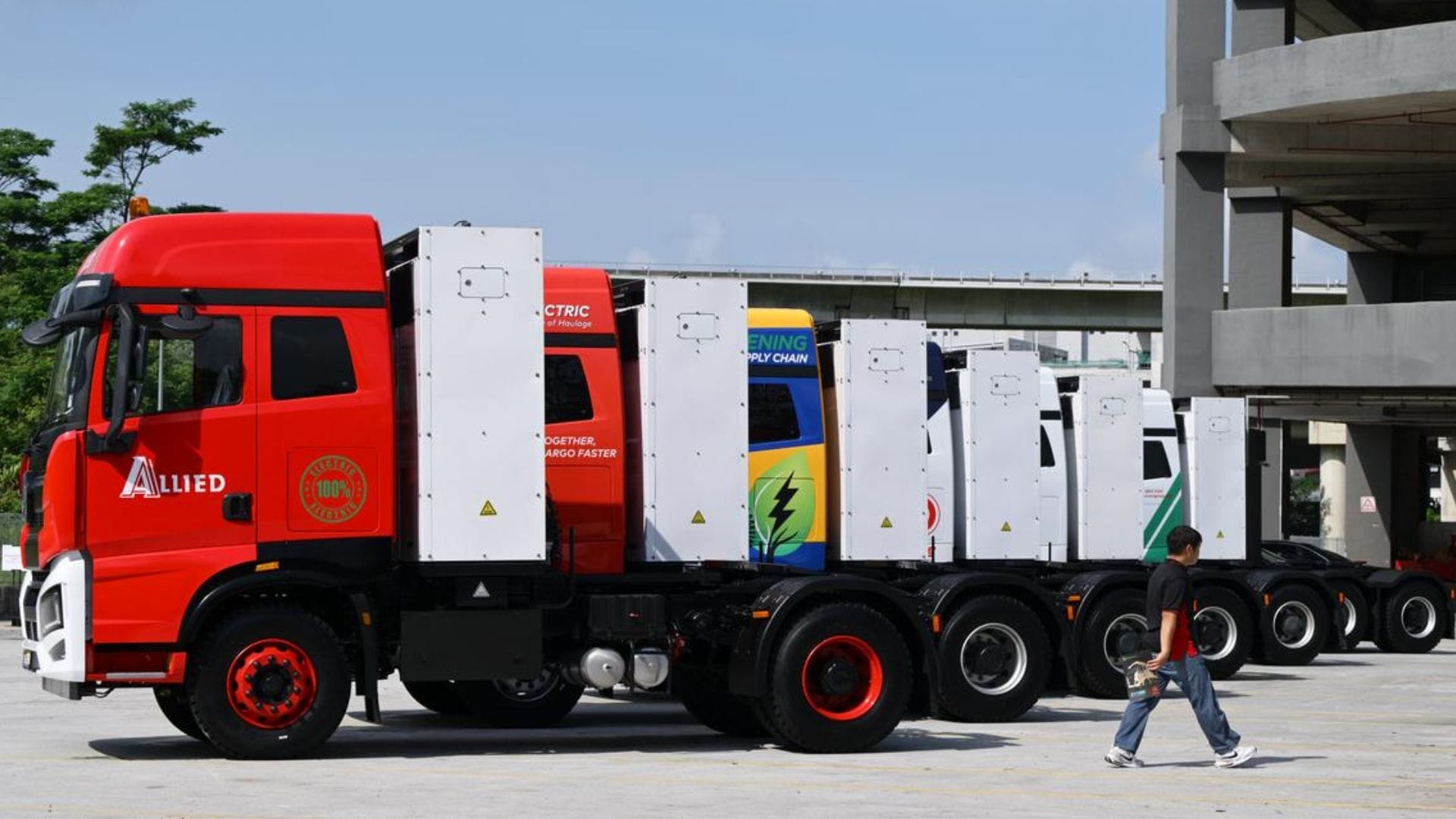Singapore launches first public battery swap station for electric heavy vehicles
Singapore launches its first public battery swap station for heavy electric vehicles, enabling five-minute swaps and boosting EV efficiency.

Singapore has opened its first public battery charge and swap station for heavy electric commercial vehicles, aiming to make operations more efficient for logistics companies. Located at 5 Tuas Avenue 5, the facility enables electric trucks to quickly exchange depleted batteries for fully charged ones in just five minutes, eliminating the need for lengthy charging times.
Table Of Content
The new station was launched on 1 August by EcoSwift, a local distributor of electric commercial vehicles, under a four-year permit granted by the Land Transport Authority (LTA). The trial is part of Singapore’s ongoing efforts to evaluate battery-swapping technology and its potential inclusion in future national EV charging standards.
Fast battery swaps boost EV efficiency
The process of swapping a battery at the EcoSwift station is fully automated. Once the electric prime mover is correctly positioned, a robotic arm removes the discharged battery, which is vertically mounted behind the truck’s cabin. It then places the battery into a charging slot at the station and installs a fully charged replacement into the vehicle.
Each full battery charge enables the electric prime mover to travel up to 240 kilometres—the cost for a full recharge amounts to S$168 worth of electricity. However, users only pay for the proportion of the charge they receive. For example, if a truck arrives with a battery at 20 per cent capacity and swaps it for a fully charged one, the user is billed for 80 per cent, or S$134.40.
By comparison, diesel-powered prime movers typically travel up to 500 kilometres on a full tank, which costs between S$300 and S$500. The battery swap model offers a more cost-efficient and time-saving alternative, especially for fleet operators.
Strategic location and limited footprint
The Tuas battery swap station occupies a compact 1,500 square feet—roughly the size of two three-room HDB flats. Half of the site serves as a sheltered bay for the swap procedure, while the other half is used for storing and charging up to three batteries. The station can manage one swap at a time, and a full battery takes approximately 1.5 hours to recharge. In total, the station is capable of performing up to 60 swaps within 24 hours.
The EcoSwift facility was jointly developed with Chinese electric vehicle manufacturer Sany, and currently supports only the Sany EV490 electric prime mover. However, EcoSwift plans to expand compatibility to other EV brands in future.
The station in Tuas is one of two pilot sites in Singapore testing this technology. The second site, operated by PSA Corporation, is located within the Pasir Panjang port terminal. Both trials received approval from LTA in mid-2024 and are intended to assess technical and operational requirements before national implementation is considered.
Major firms are already onboard
Several firms have already signed up to join the trial. Among them are logistics provider YCH Group and major retailer FairPrice Group. These companies have leased Sany electric prime movers from EcoSwift for a year as part of the programme, with the option to purchase the vehicles after the trial period.
Before the new station became operational, the trucks relied on conventional chargers, which took up to four hours per session. Now, operators can benefit from a quick five-minute swap that significantly reduces downtime.
Hayden Lin, Head of Group Procurement at YCH Group, shared his positive outlook on the new system. “Being able to swop out a battery in five minutes will enhance our operational efficiency,” he said, noting that the company had previously been using chargers located at their Bulim Avenue office in Jurong.
Ryan Woon, founder and chief executive of EcoSwift, emphasised the potential impact of the initiative: “The roll-out of the battery charge and swop station will enable logistics operators in Singapore to make the switch to EVs without sacrificing time, efficiency or space.”
As Singapore explores more sustainable transport solutions, this latest development marks a significant step toward wider EV adoption in the heavy vehicle sector.
















